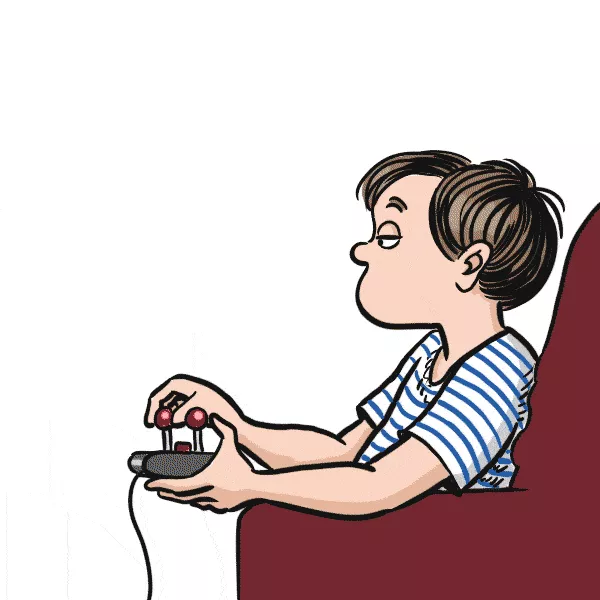Online games have been crucial for many children and young people over the last two years, connecting them with friends they could not see face-to-face, and serving as a much-needed release from the stress of the pandemic.
But as well as connecting them with friends, kids also play online with strangers, which can be risky. And even when their fellow gamers have no sinister ulterior motives, the heightened emotions felt during gaming can lead to young gamers saying and doing things they may not say and do in real life, which can cause upset.
New research by the Safer Internet Centre in the UK, which coordinates Safer Internet Day, found nearly three-quarters (73 per cent) of young people questioned reported someone being mean or nasty during an online game, seeing someone cheat (73 per cent) or falling out with a friend (68 per cent) when playing online.
#PlayYourPart and start a conversation with your child about online gaming this #SaferInternetDay.
Whilst bullying may occur in online gaming, you can use our top tips for parents and carers to help your child navigate to a safe online experience.https://t.co/EI81j6XAzj pic.twitter.com/13JdvT20wG— UK Safer Internet Centre (@UK_SIC) February 7, 2022
Advertisement
And while 66 per cent of parents have worried about their child meeting someone ‘bad’ through online games, more than a third (34 per cent) of young people say they would be likely to block someone if things went wrong during an online game and 16 per cent report quitting an online game completely when they have come into contact with a mean person or negative comments.
“With 59 per cent of young people saying they want to learn more about how to play online games safely, it’s encouraging to see how children are managing the risks they’re exposed to within online games,” Will Gardner, the centre's director said. “This is essential to being safe online, looking after ourselves and respecting others.
“We need to foster a safe environment by encouraging conversations between parents, carers and children. Safer Internet Day provides the perfect opportunity to speak to young people about the support strategies they need to stay safe online.”

Gardner has put together the following tips to help children, young people and parents better understand how to play games safely, and he adds: “Everyone has their part to play in making the internet a better place. These tips will help you to enjoy playing online games safely, while helping to identify potential risks online.”
1. Always be kind and respectful to others online
Gardner advises online gamers to use their actions and words with care, and stresses: “Remember, what you do, say and share online can have a big impact on the way other people feel, as well as how others perceive you. Being kind and respectful helps make the internet fun and safe for everyone, even if a friend is beating you at your favourite game.
“When emotions are high, take a moment to reflect and continue when you’re feeling calmer. Online games are fun, but we need to make sure we consider other people’s feelings when playing.”
2. Respect other people’s boundaries
Gardner stresses that “no means no”, and online gamers should never push other people to do something they’re not comfortable with. “If someone’s pressuring you online, remember you can always say no and tell an adult you trust,” he says.
“It’s important to remember everyone comes from a different background, and so understanding their experiences with online games is key to building relationships.”
3. Seek help
One of the most important things to do if you’re not sure about something during an online game, is to seek help and advice from a trusted family member or friend, stresses Gardner. “The internet is a resource to enjoy and learn from, but be cautious of anything or anyone you’re not 100% comfortable with or confident about,” he says. “Speaking to someone is the first step in getting support and moving forward.
“Making safe choices and communicating any worries will help to keep you, your friends and family safe.” .
4. Talk together without judgement

Gardner stresses parents are essential in ensuring children play and connect with others safely, and explains: “It’s important to ask questions and take an interest in what your child enjoys online. An essential part of having this open dialogue is not to judge, even if their behaviour or life online isn’t what you wanted or expected. This ensures your child feels they can come to you if they make a mistake or experience a problem online.”
5. Parents should seek help and support too
Just as young people are encouraged to talk about what they’re unsure of, parents should ensure they discuss any issues too. “Chances are you’ll find other parents who are trying to figure out how to help their family amid negative and potentially harmful experiences, within online games,” says Gardner.







